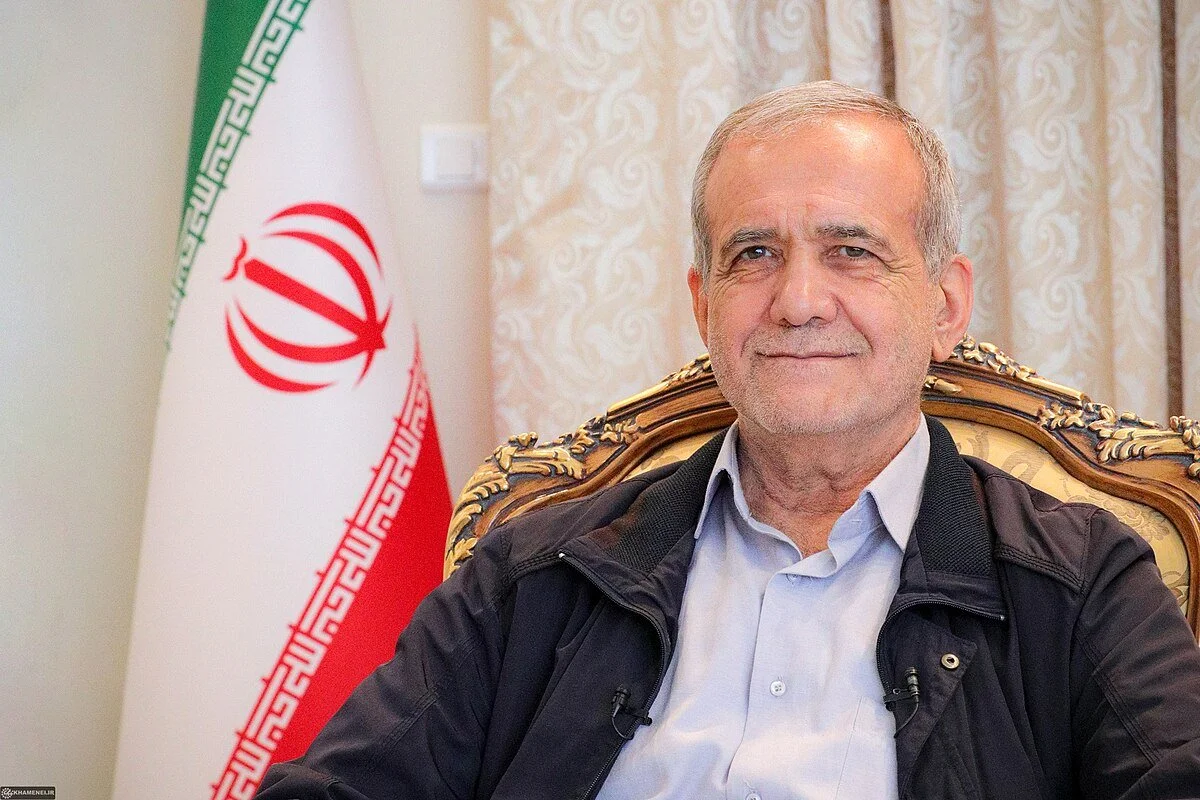Back to Isolation: Global Powers Reimpose Sanctions on Iran’s Nuclear Program
President Masoud Pezeshkian of Iran has maintained that his country’s illegal uranium enrichment activities are solely for the purpose of developing nuclear energy, not weapons. Wikimedia
In late September, the United Nations reinstated sweeping sanctions on Iran and its nuclear program after the country suspended inspections of its nuclear facilities. This condition was agreed and imposed under the Joint Comprehensive Plan of Action (JCPOA), which Iran signed with the United States and the EU in 2015. The reimposition comes mere months after Israel and the US bombed Iranian nuclear sites over concerns that the Islamic Republic was nearing the development of a nuclear weapon. Iranian President Masoud Pezeshkian spoke out against the reinstatement of international sanctions, defiantly asserting that "all countries must refrain from recognizing this unlawful situation."
The new sanctions include an arms embargo, asset freezes, travel bans, and nuclear, missile, and banking sanctions. These measures are projected to impact almost all sectors of the Iranian economy. Iran’s economy has already demonstrated strong market reactions and economic anxiety over these economic isolators. The Iranian rial traded at an all-time low, and inflation is at its highest point in 28 months. There is also a concern that the sanctions could be a pretext for further military action by Israel against Iran.
The reimposition of sanctions against Iran follows the UK, France, and Germany writing to the UN Security Council last month. They criticized Iran for barring international observers from inspecting the country’s nuclear facilities and their continuation of nuclear development in recent years despite bans on such activity. Pezeshkian maintains that the nation has no intent to develop nuclear weapons, condemning the US and Israel for intensifying international pressure to impair the Islamic Republic.
Kaja Kallas, the EU’s top diplomat, stated that the sanctions, “must not be the end of diplomacy,” and that, “a sustainable solution to the Iranian nuclear issue can only be achieved through negotiations.” The foreign ministers of the UK, France, and Germany wrote in a joint statement that they would continue to pursue “a new diplomatic solution to ensure Iran never gets a nuclear weapon,” an opinion held by most of the international community.
On the other hand, Russia has announced that it will not be enforcing the latest UN sanctions, with Foreign Minister Sergei Lavrov arguing that they, “finally exposed the West’s policy of sabotaging the pursuit of constructive solutions in the UN Security Council, as well as its desire to extract unilateral concessions from Tehran [Iran’s capital] through blackmail and pressure.”
The sanctions are likely to aggravate retaliatory measures on behalf of Iran. Ali Akbar Dareini, a researcher for the Tehran-based Center for Strategic Studies, stated that Iran has options to put an end to the International Atomic Energy Agency’s monitoring of nuclear facilities, or even leave the Nuclear Nonproliferation Treaty (NPT) altogether. What is certain, however, is that the sanctions have increased anxiety among the Iranian public and hindered diplomatic efforts between Iran and the West.

